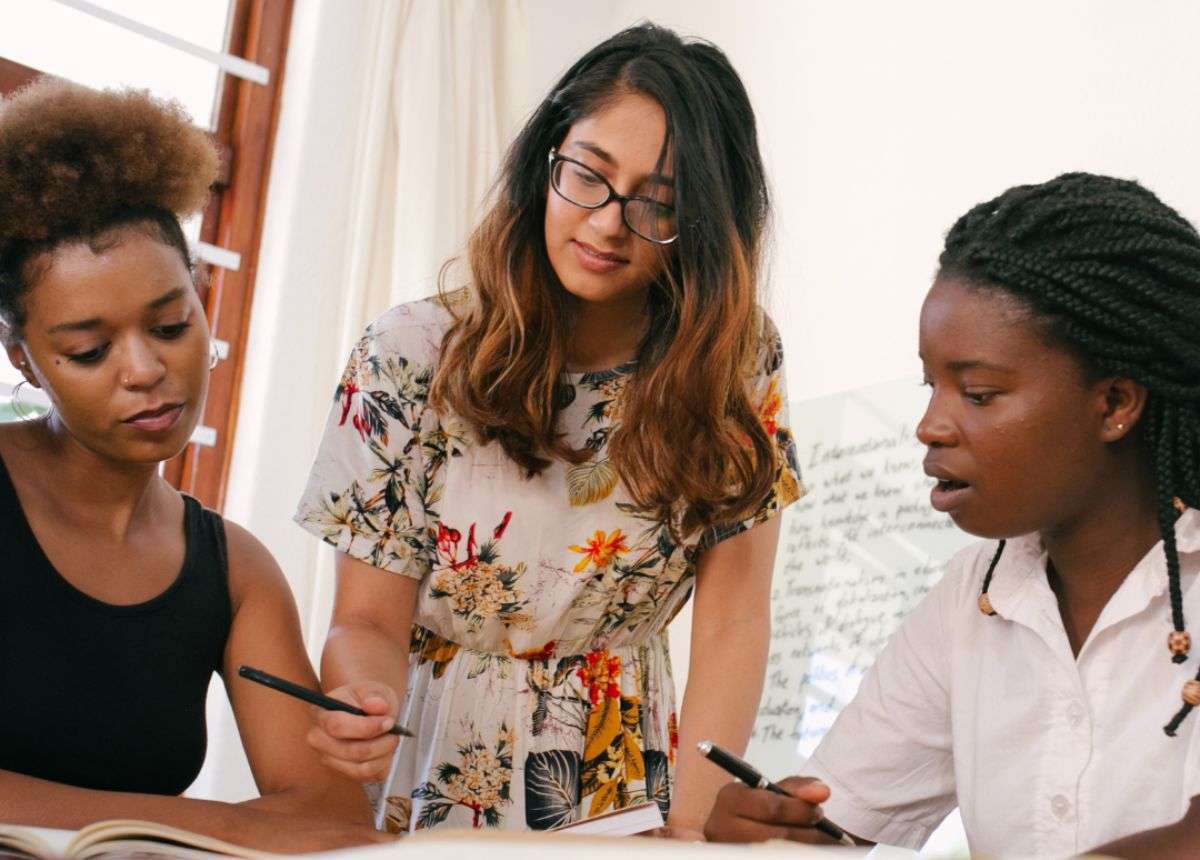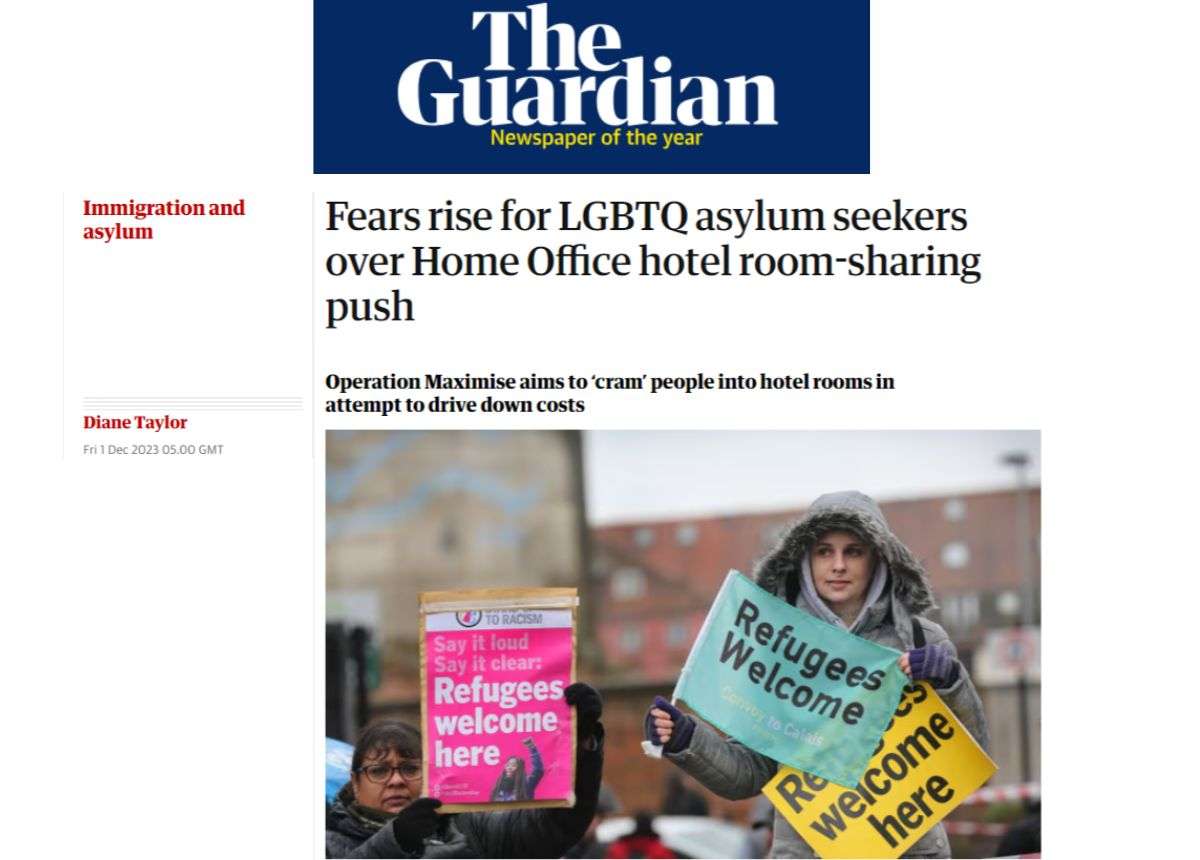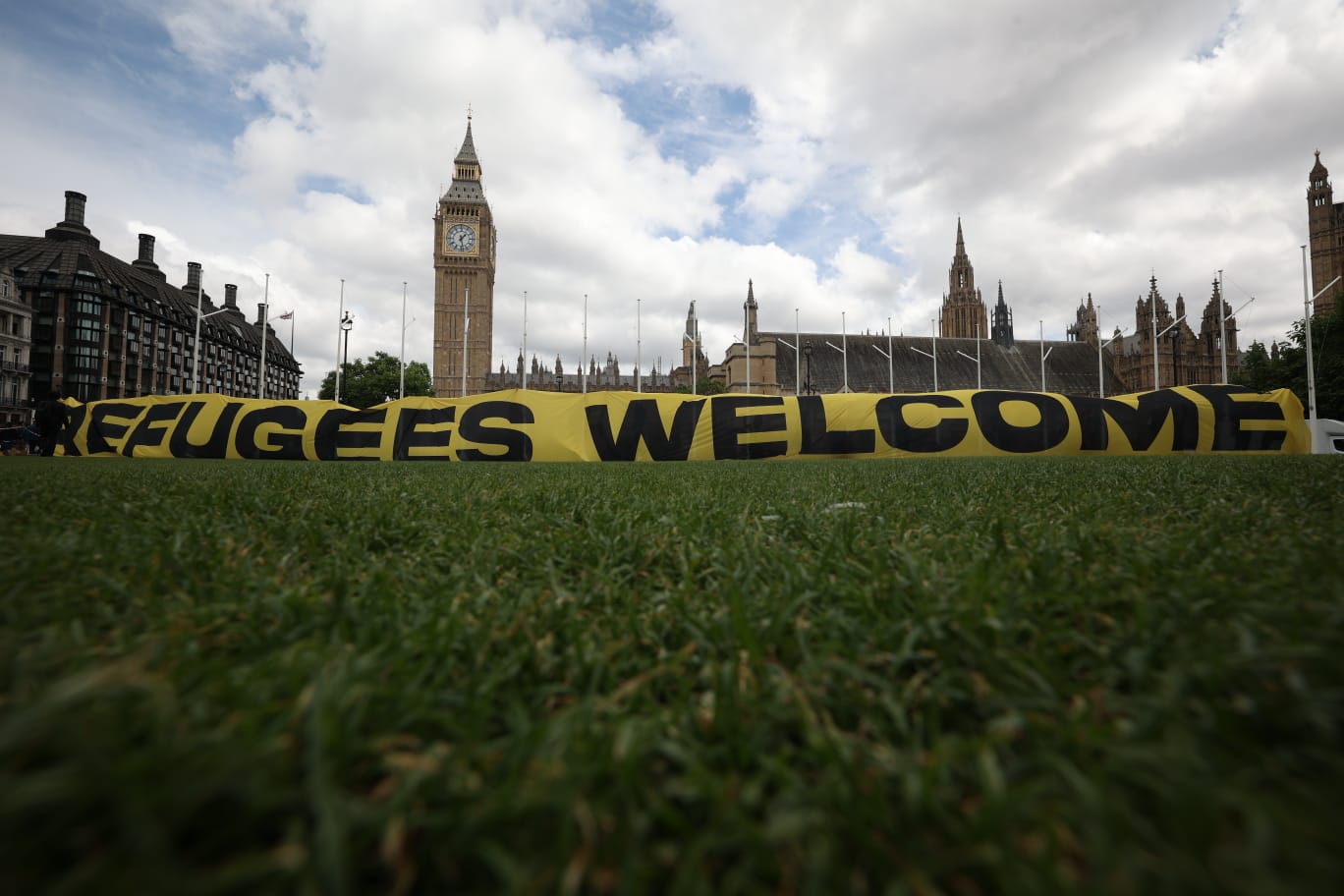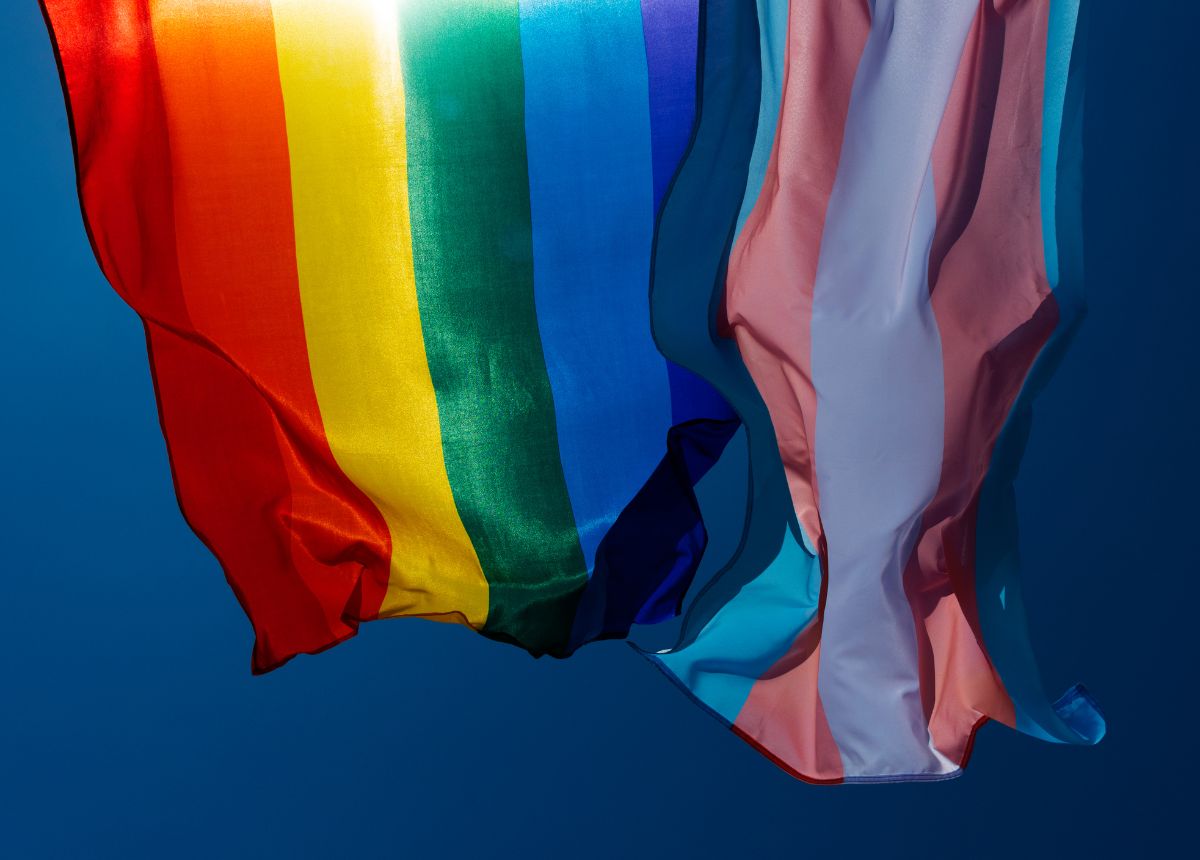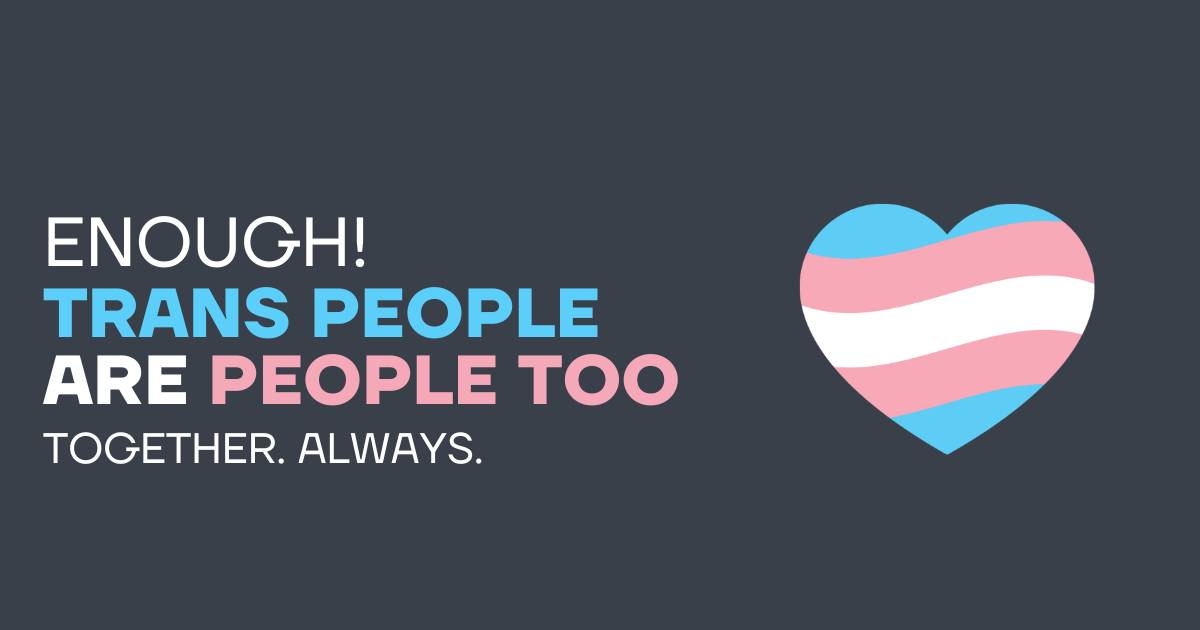Video: 2023 in review
A chance to look back at some of the achievements and highlights of our work in 2023!
One of our proudest achievements this year is that over 40 of our service users from more than 18 countries have been granted refugee protection. This has more than doubled since 2022. The people we have supported to secure their futures here include lesbians from Morocco, Iran, India, Nigeria and Uganda, gay men from Ghana and Afghanistan who we supported for over two years and trans people from Saudi Arabia, El Salvador and Pakistan, among many others. This is life-changing for each individual, and we wish them all the best for the future.
We are hiring: Policy and Public Affairs Manager
***THIS RECRUITMENT HAS NOW CLOSED***
We are recruiting for a Policy and Public Affairs Manager to join our management team. The Policy and Public Affairs Manager will develop a policy influencing strategy and lead on all areas of policy and public affairs.
Responsibilities will include:
- Developing a policy influencing strategy and monitoring framework
- Writing high-quality policy and briefing papers or reports
- Engaging with civil servants, parliamentarians, ministers and other policy-makers, influencers or allies
- Working collaboratively with charities and other stakeholders to achieve change
- Managing occasional research projects
At Rainbow Migration, we don’t just accept difference – we celebrate it, we support it, and we thrive on it. We’re proud to be an equal opportunity employer and we value diversity. We do not discriminate on the basis of race, religion, colour, national origin, gender, gender identity sexual orientation, age, marital status, or disability status – simple, we consider all qualified applicants, consistent with any legal requirements.
We welcome applications from candidates with lived experience of going through the UK asylum or immigration system or who have been subject to immigration control, and also people of colour who are currently underrepresented among our staff. We offer a guaranteed interview scheme for anyone considered as disabled under the Equality Act 2010 if they meet the necessary criteria in the person specification.
Owing to the nature of the work, the successful applicant will be required at the point of conditional job offer to disclose all spent and unspent criminal records and subsequently to undergo a basic DBS check.
Contract type: Permanent
Hours: Full-time (35 hours per week). Working part-time or job-sharing will be considered. Occasional work in the evenings and at weekends may be required but with plenty of notice. Rainbow Migration encourages staff to maintain a good work life balance and has a TOIL system in place.
Salary: Starting at £39,588 with potential annual step increases up to £44,138 (pro rata if working part time), plus statutory employer’s pension contribution. In addition to an annual step increase, the trustees consider giving a separate inflationary increase every April.
Location: Remote or from Rainbow Migration’s offices in central London. Hybrid working will also be considered. The successful candidate could work from anywhere in the UK but would be expected to occasionally travel to London and other parts of the country for meetings and events. At the time of posting this advert, none of our staff are going into the office every day. Please contact us if you have any questions.
Annual leave: 25 days per year rising after 24 months by one day after each year of service to maximum of 28 days per year (pro rata if working part-time).
Wellbeing: We offer up to two days of wellbeing leave to be taken at short notice in each calendar year.
How to apply
Closing date: 10 am on 23 January 2024
Interview dates: 31 January and 1 February 2024
Please download and read the job description and person specification. If you have any questions about the role or would like to find out more before applying, then you can contact the line manager via recruitment@rainbowmigration.org.uk.
Please send:
1. Your CV
2. A written statement (max 1,000 words). Instead of a written statement you may submit your statement by video or audio recording (max 8 minutes)
3. Optional: a completed monitoring form to recruitment@rainbowmigration.org.uk.
In your statement, please:
1. Give examples of how you meet the person specification. In addition to what is on your CV, we want to hear about any relevant skills and experience that demonstrate how you meet the necessary criteria for the role, and if you meet any of the advantageous criteria. Skills and experience could be from training, volunteering, interests or life experience
2. Confirm if you wish to be considered under the guaranteed interview scheme for anyone considered as disabled under the Equality Act 2010 (physical or mental impairment that has a ‘substantial’ and ‘long-term’ effect on your ability to do normal daily activities)
3. State how many hours a week you wish to work and if you have a preferred pattern, or if you are applying as part of a job-share
By submitting an application, you:
1. Confirm that you have the right to work in the UK and will produce the necessary documentation if you are offered this post.
2. Declare that to the best of your knowledge and belief, the information provided with your application is true and correct and that you understand that any false information or statement given will justify the dismissal from Rainbow Migration if appointed.
3. Accept that, if successful, you will be required to disclose all unspent criminal records at the point of conditional job and subsequently to undergo a basic DBS (Disclosure and Barring Service) check.
We are proud to be a member of the Experts by Experience Employment Network, which aims to create a charitable sector that is led by people with lived experience of the asylum and immigration system. As part of this network, we challenge the one-size-fits-all approach in our employment practices, and respect personal circumstances and needs of people with lived experience. Please feel free to use information and resources which may help in preparing your job application.
Privacy notice
If you apply for this role, the information you provide will be processed according to our privacy policy. Rainbow Migration will not share your information with any third parties unless part of the recruitment process or are legally required to do so. By applying, you are permitting Rainbow Migration to access and use the information for recruitment purposes. Rainbow Migration will store your data for 12 months after the conclusion of the recruitment campaign. Monitoring information is kept separately and is pseudonymised to avoid identification of applicants. It is amalgamated for statistical purposes and the original data is then deleted after six months.
We are hiring: Legal Service Manager
***THIS RECRUITMENT HAS NOW CLOSED***
We are recruiting for a Legal Service Manager to join our management team. The Legal Service Manager will lead and develop our unique immigration advice service and work closely with colleagues to provide legal analysis and ensure we use evidence from our services to influence positive change in the asylum and immigration system.
Responsibilities will include:
- Management of Rainbow Migration’s legal advice service
- Building and managing partnerships with legal aid and pro bono law firms
- Identifying opportunities for strategic litigation
- Design and delivery of training and resources to improve services from others
- Working with the Policy and Public Affairs and Campaigns Managers on briefings and evidence for Rainbow Migration’s influencing work
At Rainbow Migration, we don’t just accept difference – we celebrate it, we support it, and we thrive on it. We’re proud to be an equal opportunity employer and we value diversity. We do not discriminate on the basis of race, religion, colour, national origin, gender, gender identity sexual orientation, age, marital status, or disability status – simple, we consider all qualified applicants, consistent with any legal requirements.
We welcome applications from candidates with lived experience of going through the UK asylum or immigration system or who have been subject to immigration control, and also people of colour who are currently underrepresented among our staff. We offer a guaranteed interview scheme for anyone considered as disabled under the Equality Act 2010 if they meet the necessary criteria in the person specification.
Owing to the nature of the work, the successful applicant will be required at the point of conditional job offer to disclose all spent and unspent criminal records and subsequently to undergo an enhanced DBS check.
Contract type: Permanent
Hours: Full-time (35 hours per week). Working part-time or job-sharing will be considered. Occasional work in the evenings and at weekends may be required but with plenty of notice. Rainbow Migration encourages staff to maintain a good work life balance and has a TOIL system in place.
Salary: Starting at £44,000 with potential annual step increases up to £48,758 (pro rata if working part time), plus statutory employer’s pension contribution. In addition to an annual step increase, the trustees consider giving a separate inflationary increase every April.
Location: Remote or from Rainbow Migration’s offices in central London. Hybrid working will also be considered. The successful candidate could work from anywhere in the UK but would be expected to occasionally travel to London and other parts of the country for meetings and events. At the time of posting this advert, none of our staff are going into the office every day. Please contact us if you have any questions.
Annual leave: 25 days per year rising after 24 months by one day after each year of service to maximum of 28 days per year (pro rata if working part-time).
Wellbeing: We offer up to 2 days of wellbeing leave to be taken at short notice in each calendar year. One-to-one clinical supervision is also available for this role.
How to apply
Closing date: 10 am on Thursday 18 January 2024
Interview dates: Monday 29 January 2024
Please download and read the job description and person specification. If you have any questions about the role or would like to find out more before applying, then you can contact the line manager via recruitment@rainbowmigration.org.uk.
Please send:
1. Your CV
2. A written statement (max 1,000 words). Instead of a written statement you may submit your statement by video or audio recording (max 8 minutes)
3. Optional: a completed monitoring form to recruitment@rainbowmigration.org.uk.
In your statement, please:
1. Give examples of how you meet the person specification. In addition to what is on your CV, we want to hear about any relevant skills and experience that demonstrate how you meet the necessary criteria for the role, and if you meet any of the advantageous criteria. Skills and experience could be from training, volunteering, interests or life experience
2. Confirm if you wish to be considered under the guaranteed interview scheme for anyone considered as disabled under the Equality Act 2010 (physical or mental impairment that has a ‘substantial’ and ‘long-term’ effect on your ability to do normal daily activities)
3. State how many hours a week you wish to work and if you have a preferred pattern, or if you are applying as part of a job-share
By submitting an application, you:
1. Confirm that you have the right to work in the UK and will produce the necessary documentation if you are offered this post.
2. Declare that to the best of your knowledge and belief, the information provided with your application is true and correct and that you understand that any false information or statement given will justify the dismissal from Rainbow Migration if appointed.
3. Accept that, if successful, you will be required to disclose all spent and unspent criminal records at the point of conditional job and subsequently to undergo an enhanced DBS (Disclosure and Barring Service) check.
We are proud to be a member of the Experts by Experience Employment Network, which aims to create a charitable sector that is led by people with lived experience of the asylum and immigration system. As part of this network, we challenge the one-size-fits-all approach in our employment practices, and respect personal circumstances and needs of people with lived experience. Please feel free to use information and resources which may help in preparing your job application.
Privacy notice
If you apply for this role, the information you provide will be processed according to our privacy policy. Rainbow Migration will not share your information with any third parties unless part of the recruitment process or are legally required to do so. By applying, you are permitting Rainbow Migration to access and use the information for recruitment purposes. Rainbow Migration will store your data for 12 months after the conclusion of the recruitment campaign. Monitoring information is kept separately and is pseudonymised to avoid identification of applicants. It is amalgamated for statistical purposes and the original data is then deleted after six months.
Stop the Rwanda Bill!
Despite being found unlawful by the Supreme Court, this government still wants to go ahead with its plan to send people seeking safety here more than 4,000 miles away. The new Rwanda Bill is dangerous and disgraceful and cannot be passed by Parliament. Email your MP to call on them to vote against this cruel Bill.
We all want to live in a society where everyone is treated with care and respect. But this government is trying to divide us in an attempt to weaken our rights and freedoms and prevent us from holding them accountable for their actions.
Its Rwanda Bill will strip human rights away from people who come to the UK in the hope of safety for them and their loved ones.
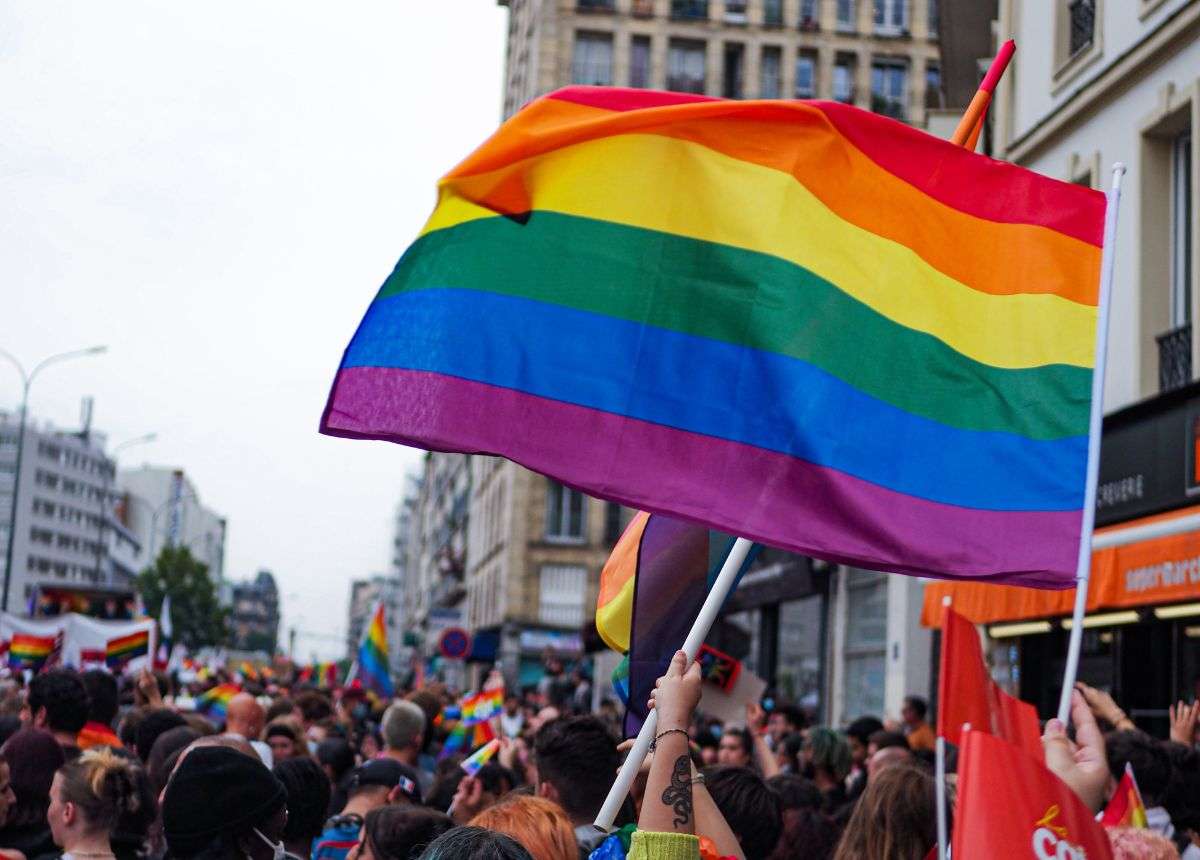
If this bill goes ahead, LGBTQI+ people who come to the UK seeking protection could also be sent to Rwanda. We have repeatedly warned that Rwanda is a country where LGBTQI+ people are subjected to discrimination, violence and abuse. The UK government’s own website states that LGBT people in Rwanda are abused, including by local authorities. The situation for LGBTQI+ people in Rwanda is so poor that people have sought asylum in the UK based on their sexual orientation.
People who arrive in the UK seeking asylum have fled persecution or conflict, and sending them 4,000 miles away to a place where they have no connections will only cause them further suffering.
As Innocent, a gay man who grew up in Rwanda and experienced first-hand abuse, said: “The UK government should reflect more on its policy, hear out and take into account the public sentiment and what the civil society and other people representing vulnerable groups are saying. Most people seeking protection are fleeing for their lives and they need help, not punishment. I do hope that LGBTQIA+ people seeking safety will not be sent to Rwanda to face discrimination.”
We will not be divided. Email your MP today to stop the Rwanda Bill.
“I will have to hide my identity in my own room”
LGBTQI+ people come to the UK fleeing dangerous situations in their home countries and hoping to rebuild their lives in safety here.
However, this government continues to place them in inappropriate and unsafe shared asylum accommodation while they wait for months or even years for an asylum decision.
In shared accommodation, LGBTQI+ people are often subject to abuse and mistreatment, which can further traumatise people who are seeking safety and protection.
We have documented many concerns about room-sharing for LGBTQI+ people seeking asylum. In our experience, sharing a bedroom can be particularly dangerous for LGBTQI+ people. We have sadly received distressed calls from our service users, reporting incidents of abuse and harassment in shared rooms.
A trans man who had been attacked back home, was placed in shared accommodation where he woke up to find some of the men he was sharing the space with were stripping off his clothes. As reported in The Guardian, he said: “The hotel staff blocked my room card [because I refused to stay in the room, but] they said I had to share. I could not do it. I slept outside the room on the stairs and cried all night. It was the worst night of my life since I arrived in the UK.” Eventually he was put on a single room.
Another lesbian that we support, told the Guardian she had been forced to sign a document agreeing to room share and was terrified of what might happen to her. She said: “I will have to hide my identity in my own room. So many of us are dealing with mental health issues and trying to overcome trauma but the letter I signed said I do not have the right to object to room sharing.”
This government should ensure LGBTQI+ people are accommodated suitably and safeguarded from harm while they seek to rebuild their lives in safety here.
You can read our full briefing on the risks to LGBTQI+ people in initial and contingency accommodation here.
Apply for a trainee solicitor position at Wilson's
***THIS RECRUITMENT HAS NOW CLOSED***
Wilson's is one of the UK's leading legal aid firms and provides invaluable free legal advice to LGBTQI+ people seeking protection in the UK. They are now recruiting a trainee solicitor to join their vibrant and exciting team, a position funded by the Justice First Fellowship.
After 6 months, the postholder will spend one day a week on placement with us at Rainbow Migration, supporting LGBTQI+ people through the asylum and immigration system. If you're interested, you can learn more about the job description and person specification and apply now.
Closing date: 8 December 2023
For further information, visit Wilson's website. Any questions regarding this role please reach out to m.davies@wilsonllp.co.uk.
Joint civil society statement on the Supreme Court ruling on the Rwanda Plan
We are relieved today that the Supreme Court has made the right decision and declared that Rwanda is not a safe country for this government to send people needing safety. The Rwanda plan was always cruel and immoral. We urge the Government to immediately abandon such plans with Rwanda or with any other country, and instead protect the rights of people who have come to our country in search of sanctuary.
While we welcome the decision today, we remain concerned by this Government’s overall treatment of people who move to this country. We are alarmed by this Government’s continuous efforts to detain and forcibly send people to countries where they may not know anyone, especially if it puts them at risk of harm and human rights violations. We know that as a community we are compassionate and welcoming, and we need immigration policies that are rooted in that same care, compassion, and respect for human rights. We call on everyone to stand up for the rights of people seeking sanctuary, regardless of where they come from or how they travel here.
Signed (as of 10.30 am Wednesday 15 November 2023)
- Joint Council for the Welfare of Immigrants (JCWI)
- BARAC UK
- Kalayaan
- Liberty
- Doctors of the World UK
- Welsh Refugee Council
- Medical Justice
- Focus on Labour Exploitation (FLEX)
- Rainbow Migration
- Bail for Immigration Detainees
- Just Fair
- René Cassin, the Jewish voice for human rights
- After Exploitation
- Freedom from Torture
- Latin American Women's Rights Service (LAWRS)
- North Wales Regional Equality Network
- Young Roots
- Anti Trafficking and Labour Exploitation Unit (ATLEU)
- Association of Visitors to Immigration Detainees (AVID)
- Every Child Protected Against Trafficking (ECPAT UK)
- Humans for Rights Network
- Hibiscus Initiatives
- Committee on the Administration of Justice (CAJ)
- Scottish Refugee Council
- Helen Bamber Foundation
- Asylum Aid
- The William Gomes Podcast
- Routes Collective
- New Citizens' Gateway
- CARAS
- West London Welcome
- Student Action for Refugees (STAR)
- Afghan Association Paiwand
- RefuAid
- IMIX
- Gatwick Detainees Welfare Group
- Kent Refugee Action Network (KRAN)
- Our Second Home
- Samphire
- Care4Calais
- St Augustine's Centre, Halifax
- Greater Manchester Immigration Aid Unit
- Good Chance Theatre
- The Runnymede Trust
- Hope at Home
- Voices in Exile
- Refugee Support Group (Berkshire)
- Ice and Fire Theatre
- Waging Peace
- Reading City of Sanctuary
- forRefugees
- Cambridge Convoy Refugee Action Group
- Hastings Supports Refugees
- Cambridge Refugee Resettlement Campaign
- Hastings Community of Sanctuary
- Herts for Refugees
- City of Sanctuary UK
- Bristol Refugee Rights
- Da'aro Youth Project
- Reunite Families UK
- Migrants' Rights Network
- Public Law Project
- Praxis
- Refugee Action
- Together with Migrant Children
- JRS UK (Jesuit Refugee Service)
- Here for Good
- Refugee Council
- the3million
- Open Rights Group
- National AIDS Trust
- Anti-Trafficking Monitoring Group (ATMG)
- Asylum Matters
- HIAS+JCORE
- People in Motion
- Refugee and Migrant Centre (West Midlands)
- RAMFEL
- Refugee Women Connect
- Voices Network
- Micro Rainbow
- LGBT Health and Wellbeing (Scotland)
- The VOICES Network
- Mermaids
- HOPE not hate
- African Rainbow Family
- Manchester Migrant Solidarity
- Safe Passage
- Birmingham City of Sanctuary
- Birmingham Schools of Sanctuary
- Haringey Welcome
- House of Rainbow CIC
- Asylum Welcome
- Anti-Slavery International
- LGBT Foundation
- Migrants Organise
- Hope and Aid Direct
- Inclusive Mosque Initiative
- Alawia SBI
- JustRight Scotland
- Kanlungan Filipino Consortium
- Time To Be Out
- TransActual
- Durham Visitors Group
- Lewes Organisation in Support of Refugees & Asylum Seekers
- RefYouMe
- Reclaim The Sea
- Big Leaf Foundation
- Freedom United
- Muslim Council of Britain
- Global Link
- Lesbian Asylum Support Sheffield
- Asylum Support Appeals Project
- Gendered Intelligence
- Migrant Voice
- Stand For All
- Migration Justice Project, Law Centre NI
- NACCOM
- Refugee Legal Support
- South Yorkshire Refugee Law and Justice
- Choose Love
- Refugee and Migrants Forum of Essex and London
- Leeds Asylum Seekers Support Network
- Nottingham Arimathea Trust
- Govan Community Project
- Simon Community Scotland
- Welcome Churches
- The Pickwell Foundation
- Refugees at Home
- Stonewall
- Sahir House
- Southeast and East Asian Centre (SEEAC)
- Room to Heal
Joint Statement: LGBTQI+ people seeking safety here will not be sent to Rwanda
Joint statement: Rainbow Migration and Micro Rainbow
We are ecstatic that this government’s cruel plan to send people seeking asylum to Rwanda has been found unlawful by the Supreme Court. This is a huge victory for kindness and common decency.
“This is a day for national celebration. The judges at the UK’s highest court have stopped this trade in humans and many people in the UK who have fled unimaginable horrors can breathe a sigh of relief”, said Leila Zadeh, Executive Director at Rainbow Migration.
"Former Home Secretary Suella Braverman's commitment to pushing ahead with the Rwanda plan risked turning the UK into a country famous for its cruel policies and attitudes towards people who need safety. We, and everyone we work with, are very happy that it has finally been found unlawful. Our beneficiaries can take a breath of relief, but they are still not safe. Now is the time to build a humane and dignified immigration system that we can all be proud of". Sebastian Rocca, Micro Rainbow CEO
For many months since it was first announced back in April 2022, we have repeatedly warned that Rwanda is a country where LGBTQI+ people are subjected to discrimination, violence and abuse.
The UK government’s own website states that LGBT people in Rwanda are abused, including by local authorities. The situation for LGBTQI+ people in Rwanda is so poor that people have sought asylum in the UK based on their sexual orientation.
There is widespread evidence of ill-treatment and abuse faced by LGBTQI+ people in Rwanda - It’s extremely concerning that this government is willing to send LGBTQI+ people who have fled life-threatening situations in their home countries and sought safety and protection in the UK to another country where they would be in danger.
Innocent Uwimana, a gay man who grew up in Rwanda and came to the UK twenty years ago wrote about his struggles back home: “Growing up, I got bullied a lot because I was gay, the bullying spilled over into violence; I was terrified of going to school. When I started secondary school, it was even worse. I was physically abused by other students because they perceived me as gay. Having experienced the discrimination faced by LGBTQI+ people, I am shocked that the UK would deport people from our community there”.
Innocent also talked to LGBTQI+ activists based in Rwanda, who expressed their surprise and disbelief in hearing about the UK government’s plan: “Most LGBTQI+ people want to leave Rwanda. They want to live in a place where they can be free and themselves. So why would the UK government think it is safe to send LGBTQI+ people there?”
LGBTQI+ people could still be sent to other unsafe countries
This decision also means that the government has nowhere to systematically send people seeking asylum to, as this government currently has no other return agreements with other countries.
However, the recently passed Illegal Migration Act lists other countries where people could be sent to have their claims processed. Many of these so-called ‘safe’ countries are dangerous for LGBTQI+ people.
This list includes Ghana as deemed safe for men, but in 2021 nine people from Ghana were granted refugee status in the UK based on their sexual orientation. A year ago, Adams, a bisexual man from Ghana that Rainbow Migration supported was granted asylum. He was violently attacked in the street on several occasions. When he got to the UK, he got the news that his partner had been killed back home.
Last week, this government announced it wanted to add India to the list of countries deemed safe. However in 2022, thirteen people from India were granted asylum in the UK *based on their sexual orientation. Nisha, a trans woman from India had to escape from India after her parents locked her in the house and forced her to undergo conversion practices.
The Illegal Migration Act also makes it significantly more likely that LGBTQI+ people who come here will be detained, with fewer safeguards and for a minimum of 28 days.
With the announcement of a new Home Secretary, it’s time for a change of direction: We call on this government to get in line with public sentiment, to ditch their heartless asylum policies and to create a more humane and compassionate asylum system so that people can rebuild their lives in safety.
*The experimental statistics show the number of asylum claims where sexual orientation was raised as a basis, or part of the basis, of the claim
LGBTQI+ people shouldn't be moved to a floating prison
As this government starts moving people seeking protection back to a floating prison we say it loud and clear again: Housing people in prison-like conditions is cruel and risks further traumatising people who have had to flee unimaginable dangers and life-threatening situations.
Some of the LGBTQI+ people seeking asylum that we support have already started receiving letters confirming their move in the coming days, which is extremely concerning.
We know that LGBTQI+ people seeking asylum are particularly at risk of harm and can face serious issues when forced to live in overcrowded conditions. People will have limited access to support and they will also not be free to move around the port, so conditions on the barge are very similar to being in prison or immigration detention.
In detention, LGBTQI+ people are likely to experience discrimination and harassment from other people who can hold LGBTQI-phobic views. Trans people can be at even greater risk of abuse.
The people that we work with are worried about being moved to the barge, and are feeling extremely anxious about this possibility and the impact it would have on them. We ask that this government commits to housing LGBTQI+ people in suitable accommodation in the community and safeguarded from harm while they seek to rebuild their lives in safety here.
Enough: Trans people are people too
We have come together with LGBTQI+ organisations and allies across the country to say enough! Trans people are people too.
Full statement from LGBT Consortium:
We cannot allow our communities, particularly our Trans and Intersex communities, to be attacked in such inhumane and degrading ways as we have seen during the Conservative Party Conference over the last week.
Rather than focusing on pressing issues affecting everyone, such as the cost of living, the climate crisis or getting timely healthcare, senior Government ministers, including the Prime Minister, sought to denigrate Trans and Intersex people, and increase the barriers they already face to accessing essential services and support. We are deeply concerned at the nature and tone of these remarks and policies.
Everyone has a right to live with dignity, free from discrimination and abuse, and to play an integral part in their local communities. That is the principle behind the Equality Act, which up until now has been supported by all parties. Government’s responsibility is to all its citizens and it should be working to proactively tackle life-limiting inequalities so that Trans people are safe to live their lives, respected and valued in society, and supported to thrive in what they do.
However, Trans and Intersex people and communities are being let down by a Government that wants to deny their existence and their safety.
For far too long now, we have seen Trans people and communities used in a culture war, mocked by those who are in positions of power, and inaccurately portrayed as a threat to others. People who support Trans people as friends, colleagues and family members are called ‘bullies’, and those questioning the Government’s new narrative in this area are removed from conversations. Announcements like the exclusion of Trans men and women from single-sex wards are made despite the NHS reporting no evidence of abuse by Trans people, and quite possibly with no consultation with those involved in providing or receiving those services. This suggests to the wider public that it is legitimate and appropriate to undertake harassment of Trans people and communities.
We call upon LGBT+ people, friends, allies, family members, businesses and voluntary sector organisations to stand up and say enough. Enough of erasing and attacking some of the most marginalised people and communities in our society, and putting the health, safety and lives of Trans people at risk. Trans people, and all LGBT+ people, are an asset to our country. Reducing inequalities should be our collective goal. If the Government can target one group of innocent people, and block them from necessary services, then it can do the same to anyone else.


